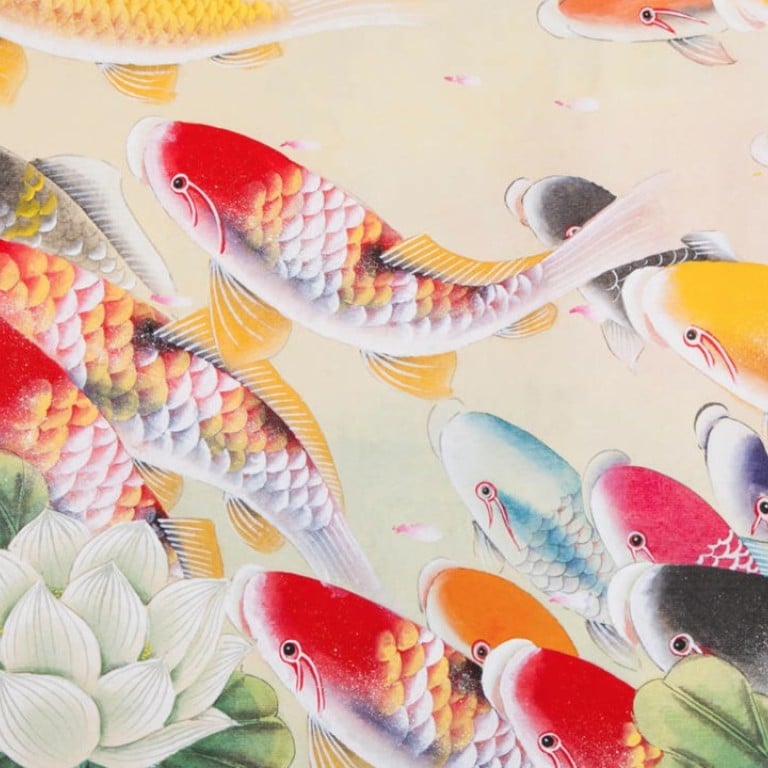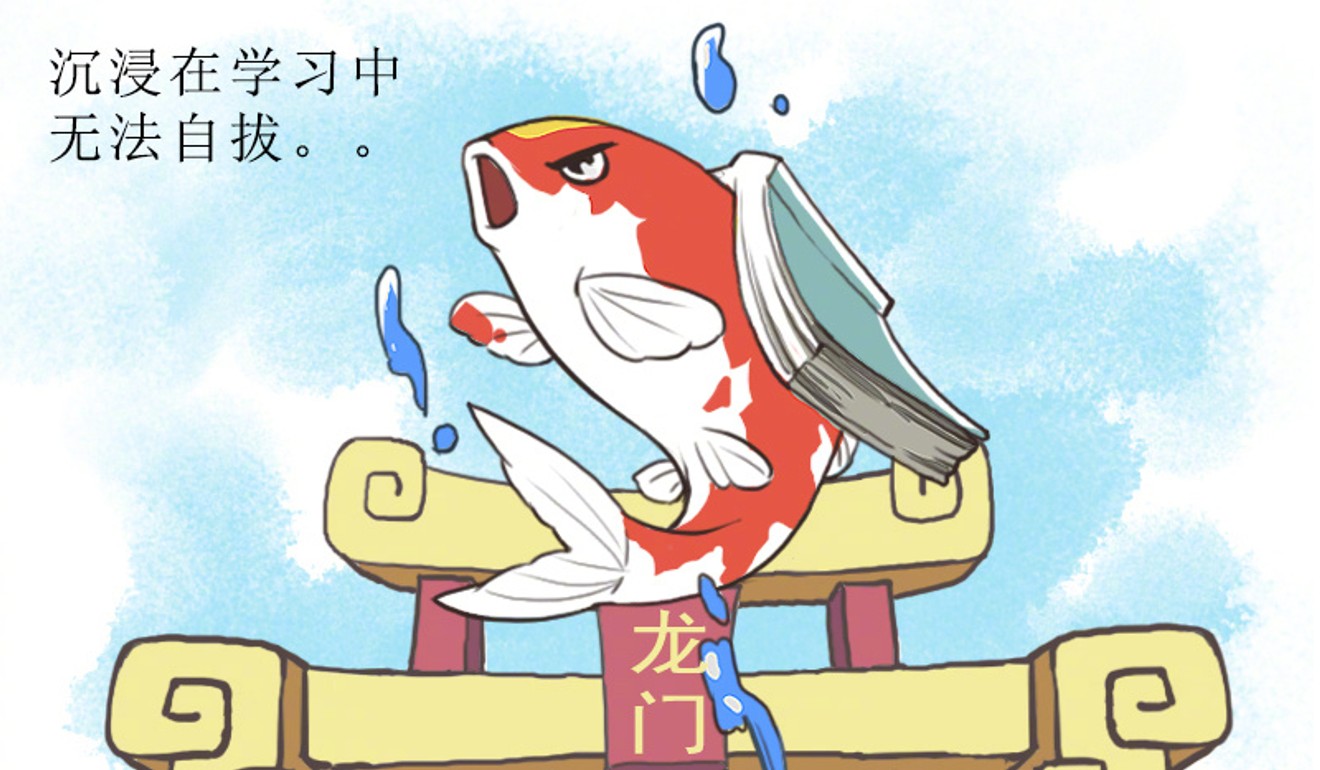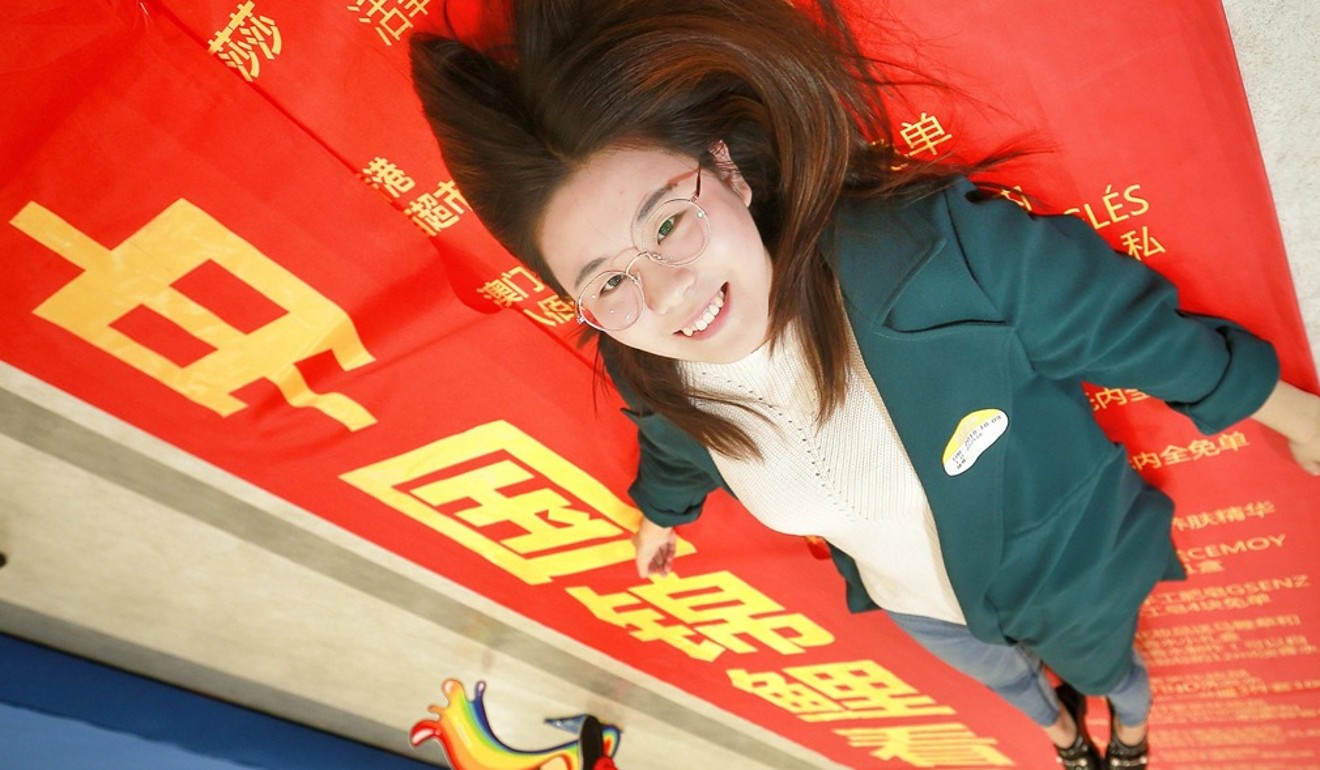
What’s with China’s internet users and this fish?
- Fame, family harmony and wealth are the traditional attributes of the koi carp
- Growing online group share pictures of the fish for success in daily life
Tradition has it that if you wish on a fallen eyelash or when a shooting star sparkles across the sky, it will come true. But young people in China have found a new way of seeking to realise their dreams: by posting pictures of fish online.
The koi carp has represented good fortune in Chinese culture since time immemorial. Today it is at the heart of a huge internet crowd that is sharing images of the fish in the hope of a little blessing, be it to pass an exam or for the speedy recovery of a sick parent.
Esteller Shi from Xiamen in southeast China’s Fujian province, added one thing to her list of preparations for her bar examination when the important day was just a month away – to forward a message featuring koi carp on social media, in the hope the fish – even just in a doodle – would bring her good luck.

After several postings in September, the 25-year-old was happy to learn she had passed section one of the exam, which she had expected to fail.
She began frequently forwarding posts featuring koi carp with messages such as “your dreams will come true” in the hope they would bring good luck to her in the second section of the exam in October.
“Forwarding these koi carp plays a psychological role. It is self-motivation and encouragement for me,” Shi said.
The koi carp represents fame, family harmony and wealth in Chinese culture. It is a feng shui favourite, symbolising abundance as well as perseverance and strength, and has a mythical potential to transform into a dragon.
Koi Carp King, a verified Weibo account with more than 16 million followers, sends out daily postings encouraging people to repost and leave their wishes in the comments. Each post, tagged as “daily superstition”, receives thousands, even tens of thousands, of comments, likes and reposts.
Bigfish Lin, 31, who owns the account, said the wishes were mostly about relationships, such as for the return of an ex-boyfriend or girlfriend, but other concerns were also popular.
“A lot of students make wishes for passing exams or finding internships or interviews. Some wish for their loved ones to recover from illness,” Lin said.
Chinese restaurant owner lands US$39,000 ‘King of Fish’ in sizzling auction
“Everyone wishes for things to develop in their favour, for example a question which happens to be included in an examination paper. My Weibo offers a platform for them to voice their wishes.
“When they believe in the power of koi carp fish, my simple reply to their wish – like ‘add oil’ – will move them and boost their confidence, sometimes leading to better performance,” Lin said.
“Add oil” is a Chinese phrase of encouragement and support which was recently included in the Oxford English Dictionary.
Lin, a former software engineer in Fuzhou, the capital of Fujian, has been running the account since 2013. He also runs an online shop selling inexpensive “luck-changing” jewellery and has worked out how to attract more followers for increased business opportunities.
Messages that are too specific – such as “forward the koi carp fish and you will get rich” – are not rewarded with the impressive reposting rates his posts can attract.
“The message has to be general and vague and appeal to the needs of more people. ‘Forward this message and your life will change for the better in November’ usually attracts far more repostings,” Lin said.
10,000 Chinese fish experience freedom, but not for long
The popularity of the fish has also spread to include extremely lucky people who are believed to possess the nature of koi carp, such as teen idol Yang Chaoyue who beat all expectations to win a singing contest in June.
Once criticised for her singing and dancing skills, Yang came third and joined pop group Rocket Girls 101. A meme of her praying with eyes closed soon went viral and she became a symbol of “lucky human koi carp fish” when some people claimed forwarding the image played a role in their passing exams or seeing the value of their investments rise.
“A third of my class uses that meme as their profile picture on WeChat,” said Xiao Huang, a 24-year-old student in her second year of postgraduate studies at a university in Beijing.
“My classmate changed her profile picture to Yang Chaoyue after she signed up for the International English Language Testing System and forwarded her picture on WeChat on the morning she took the test. She got a satisfactory score.”
Xiao said she forwarded Yang’s image whenever she saw it to “save for the needy days”. She said she would definitely forward the meme before an exam to pray that she had made the right guesses in the multiple choice section.
When she lost an earphone, she posted the meme and then posted it again after she found it, as a thank you to Yang for her help.
China urged to cut huge subsidies for unprofitable trawler fleets to curb overfishing and save oceans
The latest symbol of a “human koi carp fish” is a Beijing IT engineer, known as Xinxiaodai on Weibo.
She won an online draw organised by Alipay last month that played into the popularity of the fish, inviting people to enter by forwarding the message “Wish you to become a Chinese koi”.
Alipay is owned by Alibaba, which also owns the South China Morning Post.
Xinxiaodai received prizes worth more than 500,000 yuan (US$72,000) from 150 domestic and overseas brands, including return tickets to Africa and four cruise trips.
Her message confirming she was the winner was reposted nearly 800,000 times, with many hoping to bring themselves good luck by sharing it.

Sales of actual koi carp have also been boosted by the online craze.
Chen Shaofeng, who farms the fish in Nanyang in the central Chinese province of Henan, is enjoying huge good fortune thanks to rising demand.
He said more people were driving to his farm in Song Xiaozhuang village to buy the fish direct, while his wholesale business has also increased because of the high demand from dealers, some of them based more than 1,000km (620 miles) away.
Crowds flock to Hong Kong’s Che Kung Temple in search of luck and good fortune
Young people deny their daily koi carp ritual is a substitute for hard work and say they believe reaching their targets ultimately depends more on their own effort.
“I know koi carp fish or Yang Chaoyue is not a god. It is just my way of praying for luck. We could all use a bit of luck on occasion, such as during exams,” Xiao said.
Shi agreed, saying that posting pictures of koi carp did not mean he could idle around and still achieve his goals.
“I just hope I am not short of luck after I work hard for something,” he said.
“I believe hard work brings good luck and I am my own biggest koi carp.”

